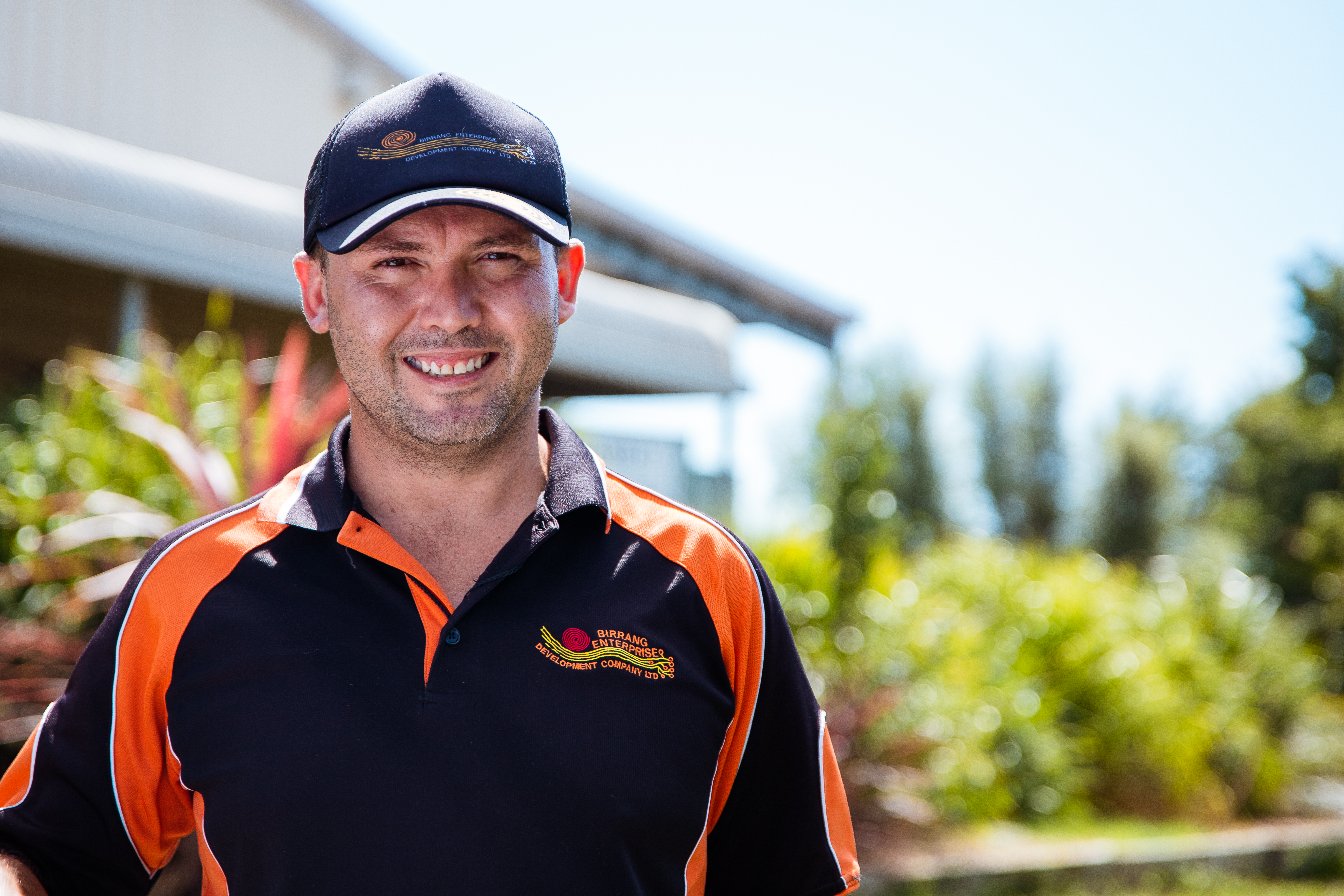Automatic language translation
Our website uses an automatic service to translate our content into different languages. These translations should be used as a guide only. See our Accessibility page for further information.
The Birrang community program is run by Aboriginal people, for Aboriginal people. Learn how Birrang is putting Aboriginal families at the heart of its service design and delivery, to make sure its ‘Building Stronger Aboriginal Parents’ program meets the needs of its participants. This community led approach, is breaking down barriers and empowering Aboriginal parents to build a bright future for their families.
Are you a TEI practitioner or someone with an interest in TEI practice? Take a closer look at the practice behind the story and learn how these TEI practitioners were able to connect with their clients and communities to achieve strengths-based and person-centred outcomes.

Ronnie is a Support Worker at Birrang Enterprises in Orange. Ronnie is featured in the video case study above and is a passionate advocate for supporting and empowering Aboriginal families in Orange.
To create a solid understanding of the opportunities we can offer our participants, we look at the entire market through the lens of our participants. This helps us to determine the potential outcome that workshops can have. For example, when planning our workshops, we ask participants to identify what sessions would benefit them most, i.e. cooking, budgeting, fitness, employment etc. We then engage service providers to deliver informational and hands-on workshops in an engaging way to ensure participants can make the most of these opportunities. Our aim is to help participants to learn or increase their awareness of community engagement, education and skills training and facilitated employment pathways.
We provide targeted support to meet the individual needs of our participants. Additional supports we provide internally include; assisting our TEI participants with achieving their driver’s license, assisting them with Working Development Orders to ensure they are paying off any fines that could affect their ability to drive, and providing additional support to participants that are looking to gain employment.
We also make external referrals to ensure our participants are receiving any appropriate assistance they may need. External referrals are made to TAFE, University of Newcastle, Bunnings, NSW Health, Community Health Services, Centrelink, Job Search Providers, Relationships Australia and many more.
The main aim of our trauma informed practice is to prevent re-traumatisation in settings that are designed to facilitate healing, and safeguard against the dangers of vicarious trauma for staff. Specifically, we follow 5 key principles of trauma informed practice; ‘safety’, ‘trustworthiness, ‘collaboration’, ‘empowerment’ and ‘choice’. These principles help us to safeguard both the survivor of the trauma and the professional supporting them in their recovery.
For example, during our "Coping with friends and family with drugs and/or alcohol issues" workshop, we developed a safe environment in collaboration with our participants and service providers. Through this workshop we offered trustworthy, one-on-one and group confidential support, and assisted participants to access a variety of support networks available within our community. This allowed us to empower our participants and respect their choices.
Having a clear path for decision-making is one of the most essential actions when working with participants. It is important to establish genuine connections with participants so that decisions can be made together. We support our participants’ choices by providing one-on-one targeted support centred on education, employment and community connections. We also work with participants to make joint decisions to help increase their knowledge and skills, specifically with regards to enrolling in further education courses, basic repairs in the home and budgeting.
The TEI program delivers a flexible, wide variety of support to children, young people, families and communities. The TEI program supports the people who need it earlier on, to make the biggest difference. This is an important step in protecting our most vulnerable children and increasing permanency for children by helping families to care for their children before they enter out-of-home care.
If you believe someone you know would benefit from some extra support or connecting with community services, search TEI on ServiceSeeker to find a service. If you need help finding a TEI service visit Family Connect and Support.
If you’re working with a family or young person and would like to refer to one of these services, search TEI on ServiceSeeker.
07 Jul 2023